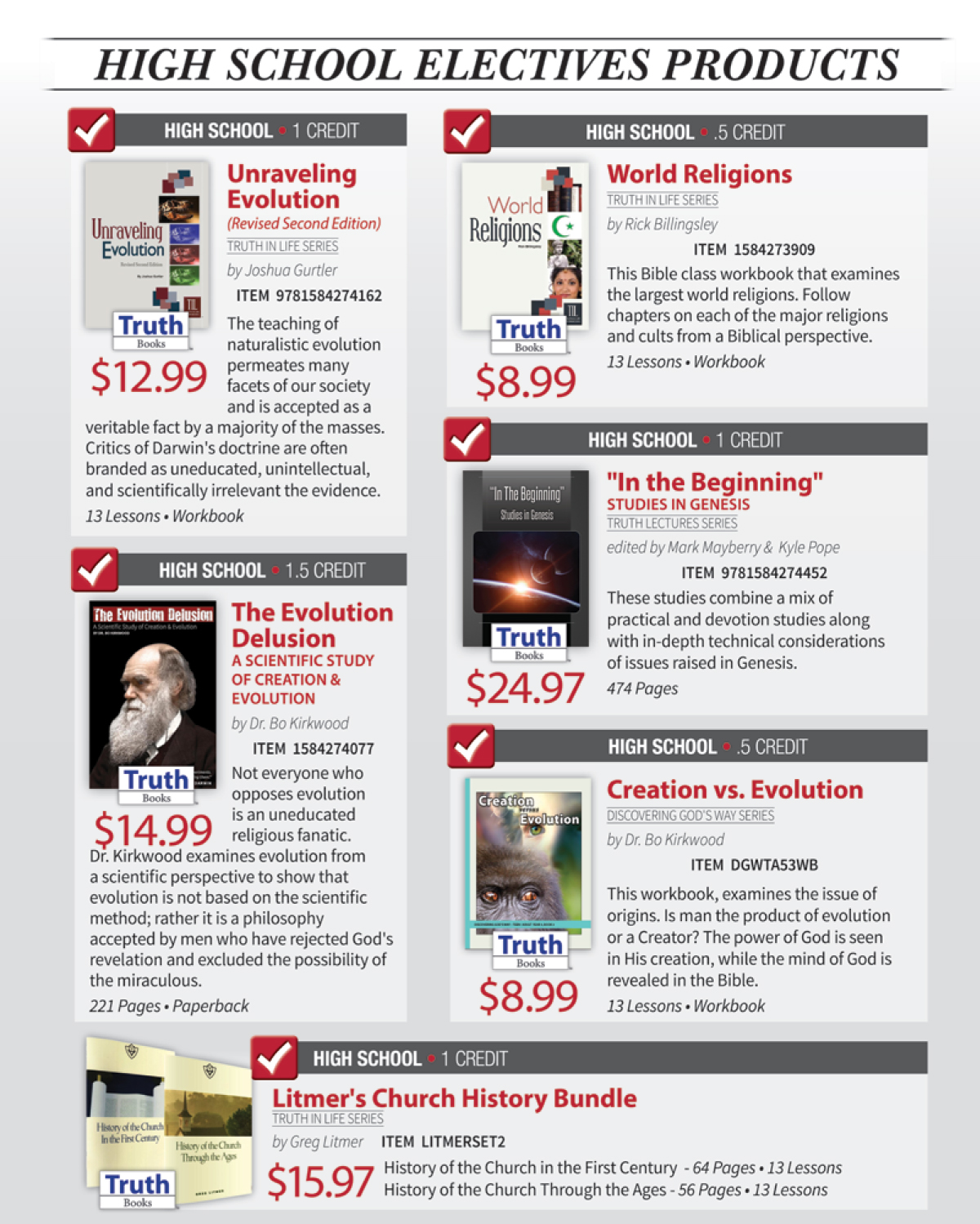

by David Flatt
Synopsis: As Israel was led through the Red Sea, received the law at Sinai, and entered the promised land by God’s presence, Paul brings his new exodus narrative to a close. Now, God’s family is guided by the Spirit to their eternal inheritance.
Romans 8 is among the most hopeful passages in the Bible. Contextually, Paul concludes his explanation about the law from the previous chapter. He explains how the law’s intention of giving life is finally achieved when God by the Spirit gives resurrection life to all those who belong to the Messiah.
Paul begins with a hopeful declaration: no condemnation! This is surprising in light of the depressing reality that the law offered no solution for sin (Rom. 7:24). He might have said, “Therefore, there is death and destruction.” However, in repeated “because/for” statements (vv. 2, 3, 5, 6), the inspired apostle explains why there is no condemnation to those who are in the Messiah. It involves the work of the Spirit in giving new life. Paul states that the Spirit released us from the death sentence of the Law of Moses. However, before the Spirit could give new life, God first had to destroy sin through the life, death and resurrection of Jesus Christ. Consider how this works.
First, Paul says that God sent His own Son. Of course, this does not mean God sent someone else to do this work, but that deity came in the person of Jesus. As previously stated, Jesus was the expression of God’s love (Rom. 5:8). Second, Paul says Jesus came in the likeness of sinful flesh: the exact place of the problem previously identified (Rom. 7:14, 25). God used the law as a trap to ensnare sin (Rom. 5:20; 7:13). Then, the vast accumulation of sin was placed on the Messiah.
Jesus Christ died a criminal’s death at Calvary. There God condemned sin. As Isaiah prophesied, the punishment that brought us peace fell on Him; by His stripes, we are healed (Isa. 53:5). However, this does not mean that God condemned Jesus. Paul explicitly states that God condemned sin in the flesh of Jesus (2 Cor. 5:21; Gal. 3:13). God’s anger and condemnation were directed at sin—not Jesus.
This may seem to be a subtle point to make, but it is critical. There are negative, albeit unintended consequences for teaching that God condemned Jesus. This creates an inaccurate picture of God. In this scenario, God behaves in a vengeful fashion. It is as if we are saying God was so angry by our sin that He wanted to kill somebody . . . instead of killing us, He killed Jesus. Now, who wants to serve a God like this?
God condemned sin in the flesh of Jesus through a specific method: sacrifice. There were two types of sacrifices made on the annual day of atonement. Of course, the irony of the timing of Jesus’ death is that He did not die on the day of atonement. Instead, He died and made atonement for our sins on Passover. The significance of this is reinforced by Paul’s exodus narrative (Rom. 6-8).
Reflect upon the sacrifices that were offered on the day of atonement, and consider their connection to the cross. The sin offering was made with two goats, each with a different purpose. One was sacrificed; the other took on the sins of the people and was sent away into the wilderness. It was called the scapegoat. Sometimes the sacrifice of Jesus is compared to the scapegoat. This often seems plausible due to the fact the scapegoat had the sins of the people spoken over it. Yet, there is a difference—the scapegoat was not sacrificed but sent into the wilderness (Lev. 16:20).
Jesus is compared to the sacrificial goat used in the sin offering. This goat had its blood sprinkled on the mercy seat as an atonement for the sins of the people (Lev. 16:15-16). This foreshadowed what God would do through the cross of the Messiah. The cross of Jesus is our place of atonement (Rom. 3:25).
Sin offerings were made generally for two types of sin: (1) those committed unknowingly; (2) those committed unintentionally. Paul mentioned these two categories in chapter 7: The good that I want to do, I do not do. The evil that I do not want to do, I do.
Consider the overwhelming accomplishments that came through the cross of Christ! By faith in what God did through the Messiah, we can avoid condemnation, be made righteous, and have eternal life.
Paul is in the process of finishing an explanation about why the Law of Moses was unable to give the life it promised. In the first eleven verses of chapter eight, Paul explains how God, by the Messiah and the Spirit, offered the life that was promised by the law. This is accomplished as we live by faith and walk, not after the flesh, but after the Spirit (Rom. 8:4).
Additionally, the apostle draws an essential contrast between life in the flesh and life in the Spirit. In chapter 7, he stated the problem Israel faced: “For we know that the law is spiritual: but I am carnal, sold under sin” (Rom. 7:14). How can a man in a sinful condition serve God? In offering an answer, Paul makes a distinction between flesh and spirit.
The concepts of flesh and spirit are perplexing. At first glance, we may think, “I’m fleshly, physical, or human; yet, I am to be spiritual. How can I be spiritual in a human body?” We wonder, “What do these distinctions signify?”
The term “flesh” means more than just our physical, human form. It is used to describe people who share in decay and corruption caused by sin. “Those in the flesh” refers to people who use their humanity to practice sin. Those who are in the flesh walk according to Adam, serving as the signposts of eternal death. The term “carnal” or “carnality” is almost always used in this negative sense.
The term “spirit” is equally complicated. It is used to refer to the Spirit of God, the Holy Spirit, and man’s inner being. Contextually, Paul explains the transformation which occurs when people obey the gospel, and are thus led by the Holy Spirit. Our focus, goals, attitudes, and behaviors are transformed. Those who are guided by the Spirit have life: mortal life in the present and the hope of resurrection life in the future. Determining if a person is living in the flesh or is being led by the Spirit is not difficult. Look at how he lives. Consider what he values. Observe who he obeys (Gal. 5:14-25, 6:7-8).
More broadly, the Bible makes it clear that there are two very different ways of being human: (1) There is one way of living in which the image of God is reflected; (2) There is another way of living in which the image of God is defiled and rejected. We can live according to the life Jesus set forth in the Sermon on the Mount, or we can live according to the idolatrous lifestyle that Paul described in Romans 1:18-32. These two ways of being human carry different consequences and lead to different destinations. One anticipates eternal life; the other foreshadows future condemnation.
We owe nothing to sin and fleshly desire. Nevertheless, we owe a great debt to God the Father, Jesus Christ, the Son, and the Holy Spirit. An overwhelming sense of indebtedness to our Creator will lead to an obedient transformation. We will seek to restrain the flesh and follow the Spirit. This is how we gain the life that was promised (but not delivered) by the law.
Additionally, Paul begins to describe the family of God. Earlier in the letter, he stated that we become part of Abraham’s family through faith (Rom. 4). Now, he returns to this idea. Those who have put to death fleshly desire and follow the Spirit are the sons of God.
Being adopted into God’s family comes with exalted privileges. The Holy Spirit will dwell in us. Like God’s presence leading Israel to the promised land, the Spirit will lead us to our inheritance. However, there is a warning. If we choose to be led by the Spirit, we will have to suffer (Rom. 8:17). The remainder of the chapter explains how God and the Spirit respond to our suffering and the impact this knowledge should have on us. If we endure suffering, however, we are promised glorification.
To come full circle, we are indebted because God has shed His love abroad into our hearts by the Spirit (Rom. 5:1-2). We are indebted because of the life God offers us in the Messiah and by the Spirit. We are indebted to God because He has given us the Spirit to lead us to our inheritance. As Israel should not return to slavery in Egypt, we also must resist the fleshly urge of returning to the bondage of sin and death. We must obediently follow the Spirit to our promised inheritance.
This is another passage where Paul reckons or sums up what he has been considering. There is some irony in what he says. He has determined that weighing human suffering with future glory is not worth comparing. Human suffering and future glory are unequal.
The totality of creation was designed to glorify the Creator. However, when sin came into the world by part of God’s creation, mainly by Adam, it was exposed to decay and death. This painful cycle of sin, decay, and death can be hopelessly unending.
Paul compares this suffering to labor pains. Excruciating contractions create an immeasurable desire for the pain to end. This desire is captured in the word “hope.” As difficult as labor pains are for a woman, they come to an end when her child is delivered: when new life comes into the world. In almost an instant, agony changes into unspeakable joy. With this illustration in mind, Paul describes God’s suffering family eagerly hoping for glorious liberty and redemption of the body. While we have not yet experienced this, we patiently hope for liberation and redemption.
This passage refers to God as “the Searcher of Hearts.” A “searcher” investigates. Envision someone searching for something with a flashlight in the dark. In this paragraph, God is described as searching our hearts in the darkness of suffering.
What will the Searcher of Hearts find? God knows what is in our hearts. Earlier, Paul stated that God will judge the secrets of men (Rom. 2:16). Here, he shows what God hopes to find through the groaning of the Spirit.
In the previous section, Paul described both creation and the church being sustained by hope as they suffer. Now, he describes the Spirit sharing in our suffering. When we do not know what to pray for, the Spirit does His work. The Spirit does not articulate speech. Humans cannot understand His groaning, even those who follow His lead. However, the Searcher of Hearts can hear and discern the Spirit’s groaning.
There are situations and outcomes for which we can pray. Other occasions and dilemmas leave us feeling woefully inadequate, despite our petitions. Suffering exposes our inabilities and limitations, especially when dealing with issues of life and death. We cannot give or sustain life. We do not have power over death. So, what can we do? Let us learn to quiet ourselves in the presence of God, trusting that He and the Spirit will provide.
When God searches the hearts of His children, He listens for the groaning of the Spirit so He might give His children what they need. The Spirit knows our needs better than do we. Yes, we all have had experiences in life where we did not know what to do or what was best. Even as we struggle to fulfill our sincerest intentions, we may not know what we need or what is best. This doesn’t mean we should not attempt to discern our needs or the needs of others. Instead, we are comforted in our deficiencies, knowing that the Searcher of Hearts and the Spirit work on our behalf.
Christianity brings trials and tribulations. Learning to trust God and the Spirit as we suffer with the Messiah is part of the process by which we are conformed to the image of God’s Son (Rom. 5:1-5). As Jesus suffered on the cross, He trusted that God and the Spirit would give Him a new resurrected life (Luke 23:46). The hope of salvation He offers to the world resulted from His suffering (Heb. 12:1-3).
Trust that God can bring good out of suffering. His family, i.e., those who are justified, learn to live by faith (Rom. 1:17). The world groans, and we with the world; yet, by the Spirit, God brings good from it all.
Reaching the end of this section, Paul broadens his theme—all things work together for good for those who love God. Our heavenly Father forms a family by faith through the work of His Son, and by the Holy Spirit. How, then, are we predestined? Although we exercise free will in accepting God’s grace, He took the initiative. Men did not choose God; rather, He chose to save sinful man through the gospel. Instead of offering a full explanation, Paul states what God intended for His family: We should be conformed into the image of His Son, who is the very image of God. When this happens, God’s children bear His image and bring Him glory even when suffering.
What Paul has explained to this point is compelling. Consider the greatness of what occurred! Ponder what has been offered to us through the cross of the Messiah. To this end, Paul asks a series of rhetorical questions of profound faith, beginning with, “If God is for us, who can be against us?”
What can separate us from the love of the Messiah? What powerful force can sever the bond of the Messiah’s love for His family? Suffering? Persecution? No, nothing can separate us from the love of Christ. Paul draws on the 44th Psalm to make this point.
The psalmist and his companions are being defeated in battle. He questions God’s love as they suffer. Surprisingly, despite their faithfulness, they were being killed like sheep taken to slaughter. God seems indifferent towards their plight. The lament ends by the psalmist petitioning God to arise, help, and redeem them for the sake of His mercy. Ultimately, the petition of this psalmist is answered by God through the Messiah and Spirit. Paul concludes by declaring that nothing can separate us from the love of God in Christ Jesus, our Lord. By faith in His love, we can be more than conquerors.
Romans 8 describes how God extended the life promised by the law through Jesus Christ and by the Spirit. Life can be offered because God destroyed the source of death: sin. Sin has been destroyed in the flesh of the Messiah; therefore, life is now provided by the Spirit. The same Spirit, which raised the Messiah from the dead, can give us resurrection life if we follow His lead.
Undoubtedly, God is on our side. The cross of Jesus proclaims this good news. God has sacrificed His Son and given His Spirit to ensure that we can be saved. These blessings can empower our salvation and enable us to live by faith (Rom. 1:16-17). Considering the magnitude of what God offers, who would refuse to obey the gospel? Sadly, some have pushed away from God’s loving arms. In the next section, Paul will address Israel, his family, which had largely rejected the gospel (Rom. 9-11).

David Flatt
David and his family began laboring with the Fry Road church of Christ in Houston, TX in 2019. The church website fryroad.org. He can be reached at dflatt85@yahoo.com.

